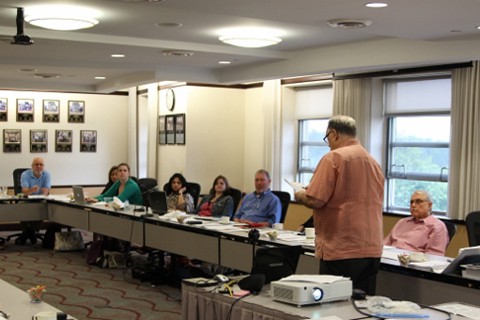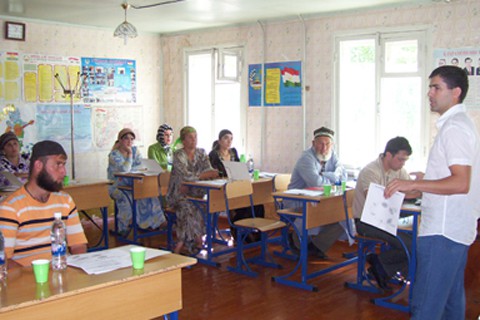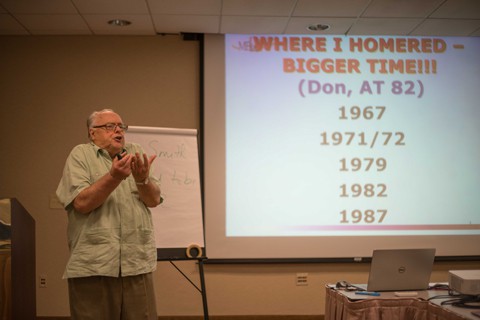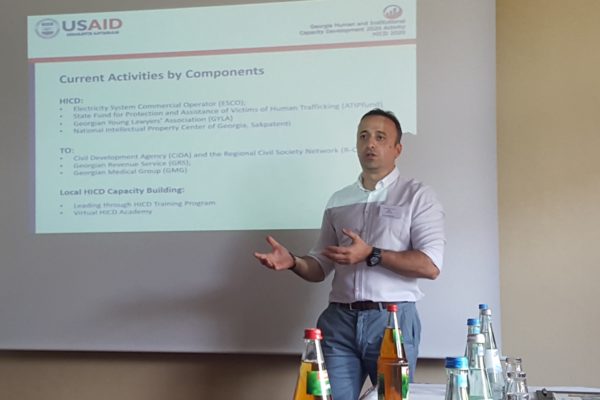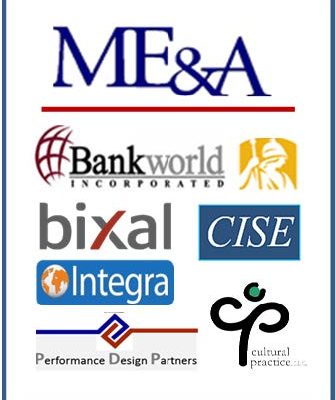
Learning Workshops
CLIENT: Multiple
COUNTRY: Worldwide
PRACTICE AREA: Learning, Management, Leadership, and Human and Institutional Capacity Development
TIME PERIOD: Ongoing
Overview
ME&A offers a series of Learning Workshops addressing issues related to management, leadership and professional development. The workshops are available in English, Spanish, French and Arabic and can be tailored to our client’s needs.
Activities
Ten key workshops are listed below with in-depth descriptions. These workshops have been offered successfully in the past to local, state and federal governments, both domestically and internationally as well as to commercial clients at corporations and non-governmental organizations. If you are interested in learning more about our workshops as well as ME&A’s capabilities in learning design and delivery, please contact Alyssa Dinsmore. We look forward to working with you!
- Instructional Design and Facilitation: For information to become useful and meaningful, it needs to be weighed, organized, structured, and facilitated into meaningful units of knowledge; information and data are the building blocks of knowledge. It is with knowledge that we build new insights, new understandings, and even new products, all of which can contribute to a more enriching context for learning.
- The Fundamentals of Project Management: ∙The rapid rate of change in both technology and the marketplace has created enormous strains on existing organizational forms. The traditional structure is highly bureaucratic, and experience has shown that it cannot respond rapidly enough to a changing environment. Thus, the traditional structure must be replaced by project management, or other temporary management structures, which are highly organic and can respond very rapidly as situations develop inside and outside the organization.
- Partnered Program Evaluation (PPE): ∙Evaluation can be viewed as a structured process, which creates and synthesizes information intended to reduce the level of uncertainty for decision- makers and stakeholders about a given program or policy. It is usually intended to answer questions or test hypotheses, the results of which are then incorporated into the information bases used by those who have a stake in the program or policy. Evaluations can also discover unintended effects of programs and policies, which can affect overall assessments of programs and policies.
- Strategic Inclusive Teamwork: ∙Developing co-workers is one of a leader’s main responsibilities. It starts with selecting great people to begin with. Then by getting to know each of them as team members really well, and staying engaged with them on an ongoing basis, we come to know where each co-worker can benefit from learning, mentoring, and team building. This creates co-worker potential, and leaders in the organizations of the future will look for that potential, nurture it carefully, and help their co-workers grow.
- Negotiating for Securing Win-Win Outcomes:∙ Negotiation itself is a careful exploration of one’s position and the other person’s position, with the goal of finding a mutually acceptable compromise, which gives us both as much of what we want as possible. People’s positions are rarely as fundamentally opposed as they may initially appear – the other person may have very different goals from the ones we expect! In an ideal situation, we will find that the other person wants what we are prepared to trade, and that we are prepared to give what the other person wants. If this is not the case and one person must give way, then it is fair for this person to try to negotiate some form of compensation for doing so. Ultimately, both sides should feel comfortable with the final solution, if the agreement is to be considered win-win.
- “Menching”: The Art and Science of Building and Sustaining Productive Relationships:∙ Today’s “Mench” (Mentor/Coach) is a facilitative partner in an evolving learning relationship, focused on meeting co-worker learning and performance goals and objectives. The role of the Mench is to facilitate learning in such a way, that the knowledge and capabilities connect to action in the present, and possibilities in the future. In order to optimize that relationship, Menches must grow and develop. Facilitating a learning relationship starts with self-learning. Without a Mench’s commitment to personal learning, the potential effectiveness of the learning relationship is greatly reduced.
- Embracing Diversity: A Global Imperative: ∙The concept of diversity encompasses acceptance and respect. It means understanding that each individual is unique, and recognizing our individual differences. These can be along the dimensions of race, ethnicity, gender, sexual orientation, socio-economic status, age, physical abilities, religious beliefs, political beliefs, or other ideologies. It is the exploration of these differences in a safe, positive, and nurturing environment. It is about understanding each other and moving beyond simple tolerance in order to embrace and celebrate the rich dimensions of diversity contained within each individual. Look around and we will see that our society is very diverse. Diversity enriches our lives. By learning to recognize our similarities and appreciate our differences, together we can overcome prejudice and intolerance, and work towards a more peaceful and productive world. Embracing diversity allows us to value our individual heritages and beliefs while respecting those of others.
- Strategic Thinking: Its Purposes, Principles, Practices, and Promises:∙ Mintzberg, the champion of strategic thinking’s argument is as follows: strategic planning is about analysis (i.e., breaking down a goal into steps, designing how the steps may be implemented, and estimating the anticipated consequences of each step). Strategic thinking is about synthesis, about using intuition and creativity to formulate an integrated perspective, a vision of where the organization should be heading. When managers comprehend the difference between planning and strategic thinking, it is possible to return to what the strategy-making process should be: capturing what the manager learns from all sources (both the soft insights from his or her personal experiences and the experiences of others throughout the organization, and the hard data from market research and the like), and then synthesizing that learning into a vision of the direction that the business should pursue.
- Practices of Accountable Management:∙ There is a global search for answers to some of life’s most important questions, such as “why am I here?” and “what is my purpose? It is to take seriously the counsel of Socrates to examine one’s life, for as he maintained, “the unexamined life is not worth living. Thus, enter the liberal art of management. At its heart, management deals with questions of the human condition. It involves the study of disciplines which deal with human behavior, creativity, emotions, decision reaching, and moral values. Management necessarily involves organizing people for productive purposes, and thus it requires an understanding of what it means to become human.
- Change Leadership: Navigating a Path to Organizational Transformation: ∙Modern leadership is a balancing act. We need leaders who can accept the challenge of navigating between opposites. The most prevalent type of change in organizations today is transformation. Leaders must create in their co-workers the capabilities, infrastructure, mindsets, and behaviors they require. Transformation demands shifts in leadership and co-worker mindset, culture, ways of relating, and the ability to course correct. Being able to lead change more optimally than our competitors is a key strategic advantage in the 21st century. We, therefore, aspire to develop creative and inspiring leaders who will create success, rather than bureaucratic managers who cannot adapt to the brave new world of globalization and the networked society.
These workshops are the result of more than three decades experience in teaching and consulting internationally. Additional background material is available in our learning resources bibliography.
Funding
ME&A offers workshops to its clients on a variety of topics related to management, leadership and Human and Institutional Capacity Development both in the United States and internationally. We can tailor our Learning Workshops to specific client needs, environments, and budgets.


